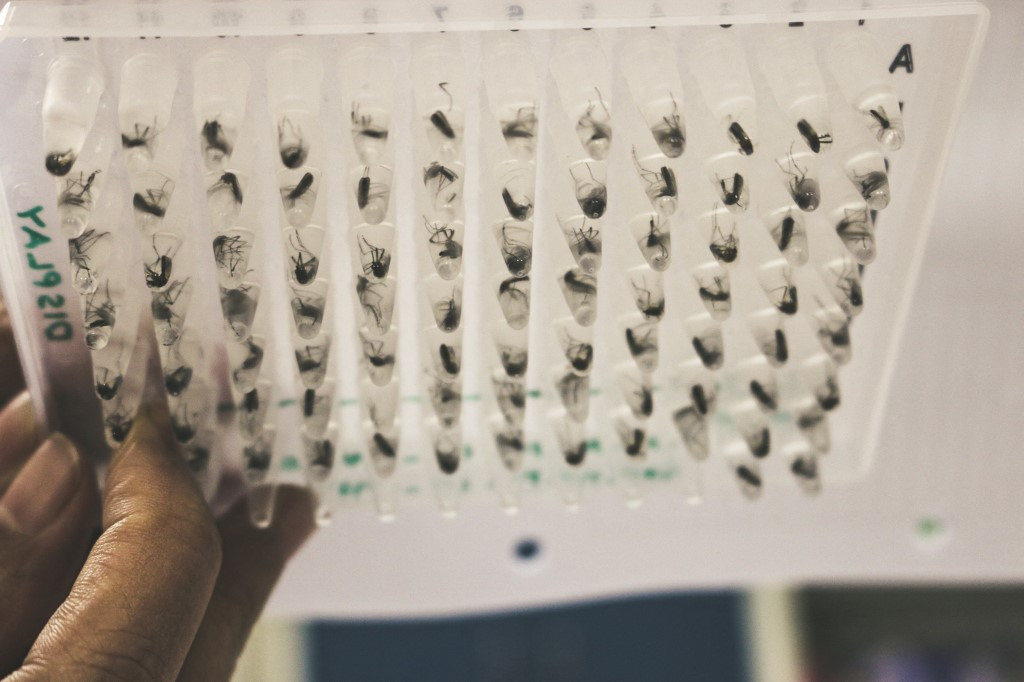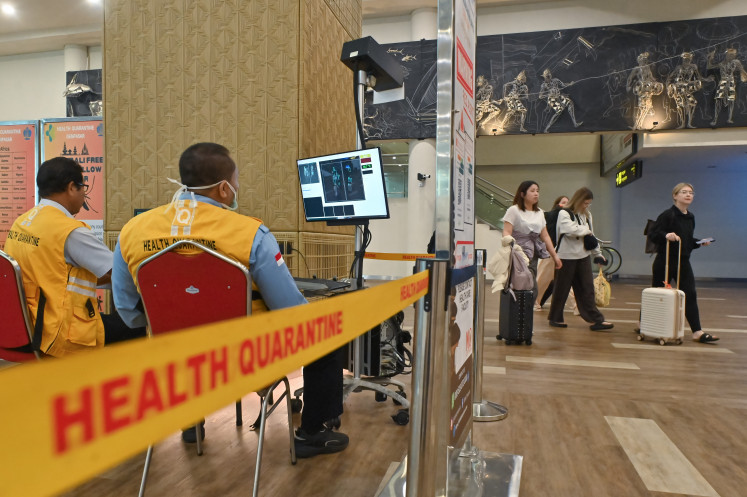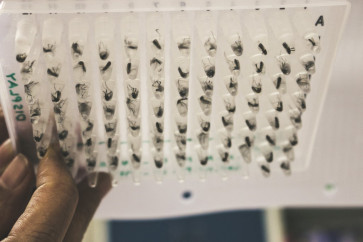Popular Reads
Top Results
Can't find what you're looking for?
View all search resultsPopular Reads
Top Results
Can't find what you're looking for?
View all search resultsWolbachia-infected mosquito eggs ready to fight dengue in West Jakarta
The Jakarta Health Agency is preparing to distribute over 800 buckets containing around 150 Wolbachia-infected mosquito eggs to West Jakarta homes next week, in a new measure to prevent the spread of dengue.
Change text size
Gift Premium Articles
to Anyone
T
he Jakarta administration is planning to release the eggs of lab-bred mosquitoes carrying the Wolbachia bacteria next week in Kembangan district, West Jakarta, in an effort to control dengue in the mayoralty.
The process involves health authorities distributing buckets filled with water and up to 150 Wolbachia-infected mosquito eggs.
“We are preparing more than 800 buckets for distributing to [selected] households in Kembangan,” Jakarta Health Agency head Ani Ruspitawati said on Wednesday, as quoted by kompas.com.
The buckets are placed in a suitable environment for the eggs to hatch and develop into adult mosquitoes that then go on to infect other mosquitoes with Wolbachia, helping to curb the spread of dengue.
Dengue fever is a viral disease transmitted through the bite of Aedes aegypti and Aedes albopictus mosquitoes, invasive species common in urban environments and tropical climates that have spread across the globe.
The dengue virus is weakened when it interacts with Wolbachia, a bacterium found in 60 percent of insect species but not in Aedes aegypti. The microorganism was first identified in the early 20th century by American scientists Marshall Hertig and Simeon Burt Wolbach.
Read also: Wolbachia-carrying mosquitoes: Hope to combat dengue fever



















